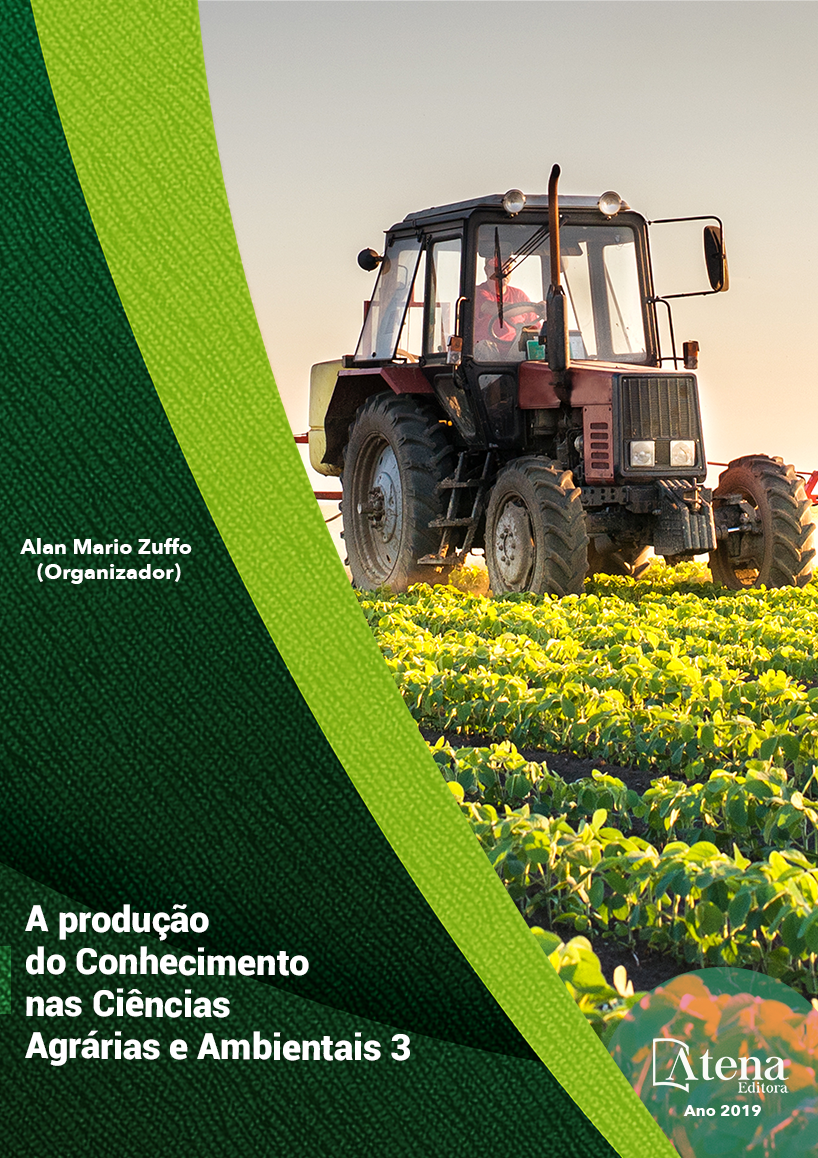
ESTUDO DA MELHOR EFICIÊNCIA PRODUTIVA PROPORCIONADA PELO USO DE ÍNDICE DE CONFORTO AMBIENTAL ADEQUADO
Variáveis climáticas como
temperatura, umidade relativa, radiação
solar e vento influenciam no estresse, bemestar
e produção animal, devendo assim ser
observados em conjunto por meio dos “índices
de conforto ambiental”, determinados a partir
da combinação dessas variáveis. O uso de
um índice que melhor represente o ambiente
produtivo reflete no consumo energético dos
dispositivos de climatização e na qualidade
do produto, podendo ser assim, tratado como
ação sustentável a ser adotado no contexto
do desenvolvimento do agronegócio regional.
Entre os índices existentes, destacam-se
o índice de temperatura e umidade (ITU) e
entalpia (H). Neste estudo utilizou-se uma série
histórica para compará-los e verificar qual foi
mais rigoroso na indicação de estresse, tendo
como referência aves de corte. A pesquisa
foi realizada na UFGD, com dados climáticos
de 2017 disponibilizados pelo INMET para
Dourados-MS. Utilizando planilha eletrônica
foram calculados e comparados hora a hora o
ITU e H. Ao final da pesquisa concluiu-se que
os índices diferem-se quanto à classificação
do conforto, o quê proporciona maior gasto
energético dos sistemas de climatização,
dependendo do índice adotado como referência,
sendo que Entalpia demonstrou ser mais
rigoroso nas semanas iniciais das aves, o quê
aconteceu com o ITU nas últimas semanas.
ESTUDO DA MELHOR EFICIÊNCIA PRODUTIVA PROPORCIONADA PELO USO DE ÍNDICE DE CONFORTO AMBIENTAL ADEQUADO
-
DOI: 10.22533/at.ed.86919260415
-
Palavras-chave: ambiência, produção animal, sustentabilidade
-
Keywords: ambience, animal production, sustainability
-
Abstract:
Climatic variables such as temperature, relative humidity, solar radiation
and wind influence on stress, welfare and animal production, and should therefore
be observed together by means of the “environmental comfort indexes”, determined
from the combination of these variables. The use of an index that best represents the
productive environment reflects the energy consumption of the air conditioners and
the quality of the product and can therefore be treated as a sustainable action to be
taken in the context of regional agribusiness development. Among the existing indices,
the temperature and humidity index (ITU) and enthalpy (H) stand out. In this study, a
historical series was used to compare them and to verify which one was more rigorous
in the indication of stress, having as reference birds of cut. The research was conducted
at the UFGD, with climatic data from 2017 provided by INMET to Dourados-MS. At the
end of the research, it was concluded that the indices differ in the classification of
comfort, which provides greater energy expenditure of the air conditioning systems,
depending on the index used as reference, where Entalpia was more rigorous in the
first weeks of birds, which happened in the last few weeks.
-
Número de páginas: 15
- Mauricio Battilani
- Rodrigo Couto Santos
- Ana Paula Cassaro Favarim
- Juliano Lovatto
- Luciano Oliveira Geisenhoff
- Rafaela Siva Cesca


